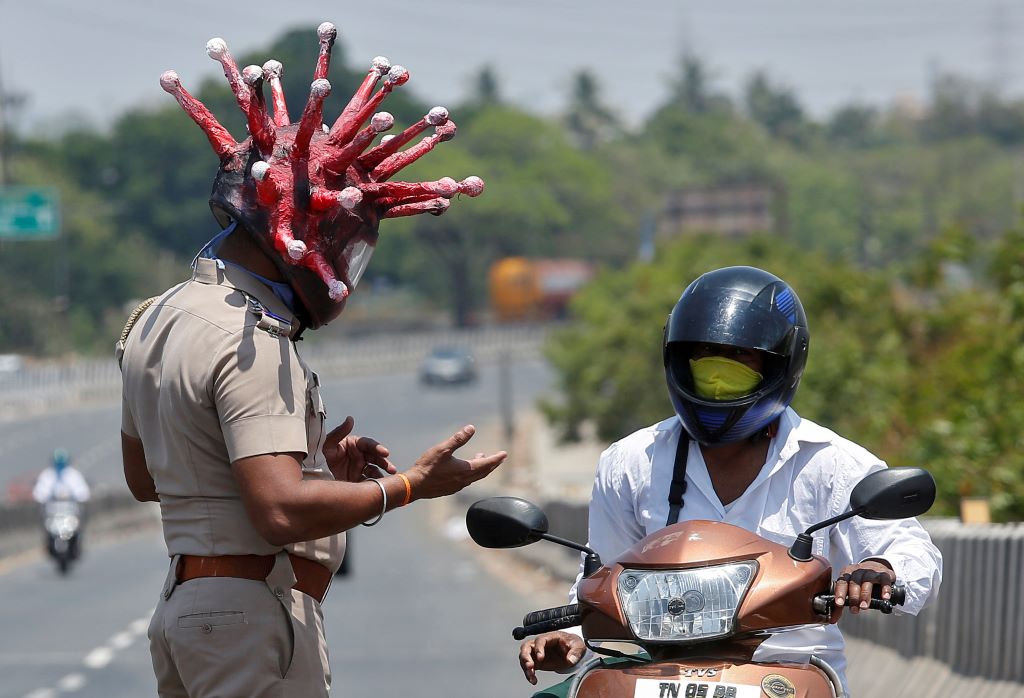Moving forward, we must remember our humanitarian duty to each other
Humankind has outlived multiple pandemics in the course of world history. The kingdoms and states of Central and Western Europe abolished the institution of serfdom once it had become clear that medieval rule in the aftermath of devastating pestilence would flounder without ending the dependency and servitude that characterized the Dark Ages.
The vulnerability of entire nations to the risk of total collapse in the absence of widespread access to the most basic health care during the Spanish Flu spurred governments to build the public health systems that have made the progress and development of the last hundred years possible.
If the past is prologue, then continuity and survival command that we change.
We have, more often than not, banded together in the face of all kinds of threats. In all its ramifications, Covid-19 threatens to push our social, political, and economic structures to the brink.
Disease, recession, and fright can rapidly overwhelm states and societies. Each coming day will bring increasing challenges that can only be met by caring for the sick, minimizing the impact of shutdowns on lives and livelihoods, securing the delivery of adequate water, food and energy supplies, and racing for a cure.
Success — as in an asymmetric conflict — rests on resilience. To contain the socio-political and socio-economic fallout from the crisis, policy-making efforts should centre on human dignity and welfare as the bedrock of national and international security.
The most vulnerable members of society in some parts of our world are those on the frontlines of the crisis: The doctors, nurses, care-givers, pharmacists, sanitation workers, farmers, supermarket cashiers and truck drivers whose courage, sacrifice, and dedication will see us through the next 12 to 18 months of expected lockdowns.
In the absence of state support, what will happen to the hundreds of thousands of people who have already been laid off, while millions more face looming hardship as the numbers of layoffs grow?
Some will continue to ignore the vulnerable and marginalized, those who have least access to humanitarian assistance, while others will continue to exploit them.
The calls for social distancing have grown louder and more frequent over the last couple of days, and as we begin to separate from one other we must remember our humanitarian duty to each other.
Security, far from being individual, is collective and global. The current crisis calls for transcendent thinking between politicians on both sides of the aisle.
Grey areas in politics in which zero-sum games and the perverse logic of mutually assured destruction proliferate will not protect and promote human dignity and welfare. Conservatives and reformers must now move beyond the tournaments and arm-twisting of politics.
The logic of mutually assured survival cannot accept grey areas. If conflict resolution transcends political beliefs, nationality, ethnicity, gender, and religion, then human dignity and welfare is the benchmark of the humanitarian commitment to life. Regional insecurity is heightened in the absence of cooperation, but the multilateral system is not at a loss in facing an existential crisis.
Multilateralism today can only be revisited with a focus on the interdisciplinary priorities of the 21st century that include addressing the need for a law of peace. We draw humanitarian concessions from the law of war in times of conflict, but have no recourse to legal instruments that can secure the dignity and welfare of all in times of peace.
The current crisis is as much a global health crisis as it is a crisis of the globalization that has come to undermine the foundations of modern society with its rampant inequality and rising injustice, and which threatens the very survival of our species with climate change.
The planet that we share with other organisms is fragile and prone to crises. A resolution to our predicament will take nothing short of extending the ethic of human solidarity beyond the contours of our immediate response to the outbreak of Covid-19.
Real success lies not in the taming of a pathogen or in re-discovering the value of compassion, respect and generosity, but in institutionalizing these values in the days, weeks and months ahead.
Prince Hassan bin Talal is a member of the Jordanian royal family. This article was originally published on Inter Press Service and has been reprinted under special arrangement.
Source: Dhaka Tribune










